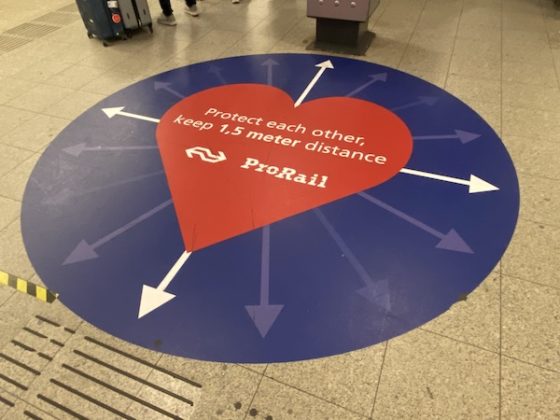Dutch coronavirus infections rise by 5,400 in a week, young adults dominate


There has been another sharp rise in the number of people testing positive for coronavirus in the Netherlands, but fewer people have died and been admitted to hospital, according to the latest weekly round up from public health institute RIVM.
In total, 5,427 people tested positive for the virus in the week to Tuesday morning, up almost 2,000 on a week ago, the RIVM said. The new infections were spread all over the country, with most in Noord and Zuid-Holland provinces.
At the same time, the percentage of positive tests has also risen, from 2.2% last week to 2.8% now. The highest positive test rate was recorded in the Haaglanden health authority, where the rate jumped to 7.4%.
People in their 20s again account for by far the most of the new infections – with an infection rate almost double that of people in their 30s, the RIVM figures show.
The start of the new university and college year may play a role in this. In Delft, for example, there has been a sharp rise in infections while 170 students at Radboud University in Nijmegen have been ordered into quarantine after an outbreak at a popular student bar. The café has been closed on the mayor’s orders after 10 customers and members of staff were found to have the virus.
With the virus now largely impacting on young people, hospital admissions remain very low compared with earlier in the pandemic. Just 43 people were admitted to hospital and 17 people died over the past seven day period, the RIVM said. Last week there were 57 new hospital admissions and 24 deaths.
Backlog
However, the public health institute said, the backlog of working facing local health boards means that deaths and hospital admissions are not always reported immediately, which distorts the weekly figures.
So far there are no signs that the decision to reopen schools has led to an increase in infections, and school-related cases of coronavirus appear to be adult to adult infections, the RIVM said. Most infections are still taking place at home.
As testing increases, around 25% of people are currently having to wait longer than 48 hours for their results, with half hearing within that deadline and the rest within 24 hours, according to local health board figures.
It is also still proving impossible to offer everyone who wants a test and appointment at a drive-in centre within 48 hours. This, according to the health ministry, is down to a shortage of equipment and materials at labs, not capacity problems with the health boards themselves.
Health minister Hugo de Jonge is now bringing commercial labs into the testing system, but delays will still be an issue as this process gathers steam.
Thank you for donating to DutchNews.nl.
We could not provide the Dutch News service, and keep it free of charge, without the generous support of our readers. Your donations allow us to report on issues you tell us matter, and provide you with a summary of the most important Dutch news each day.
Make a donation